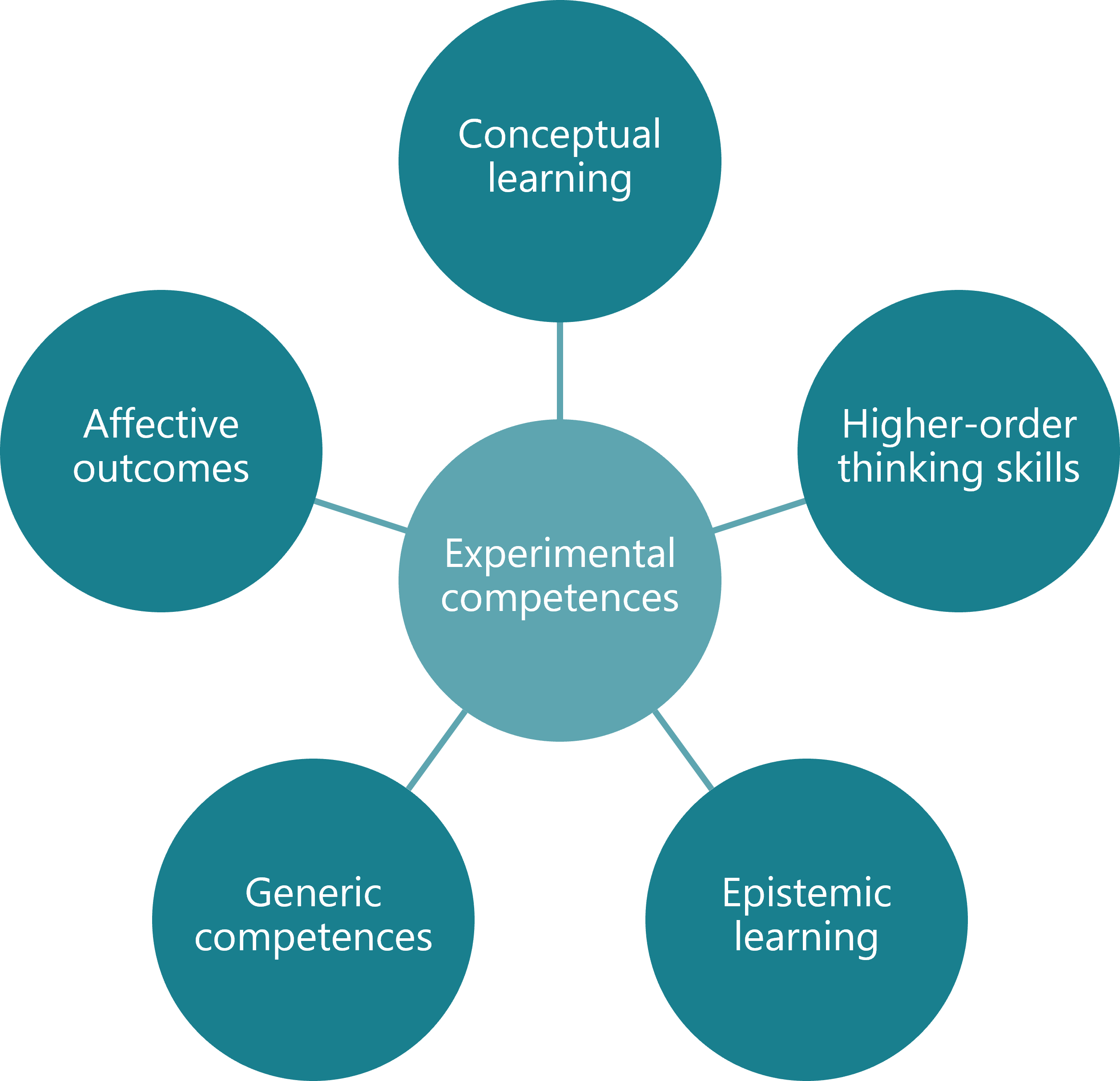How can laboratory-related competences be described and characterized
Learning outcomes of university chemistry teaching in laboratories: A systematic review of empirical literature
This systematic review is aiming to characterize learning in the laboratory and substantiate learning outcomes associated with laboratory instruction sin university chemistry. Analysis of 355 empirical studies revealed that students develop five clusters of laboratory-related competences:
- Experimental competences
- Disciplinary learning
- Higher-order thinking and epistemic learning
- Transversal competences
- Affective domain
These competences are specified into related constructs measured in the studies. Synthesis of the studies led to a substantiated view on multidimensional learning in the laboratory and its implications for research, practice and theory are suggested.
Research areas that need further investigations are also proposed.
Click on the icon below to read more.
Danish University Faculty Perspectives on Student Learning Outcomes in the Teaching Laboratories of a Pharmaceutical Sciences Education
With the purpose of bridging research and practice, faculty members teaching laboratory courses in pharmaceutical sciences at UCPH were interviewed about their perspectives on learning outcomes of laboratory work with focus on the five clusters of learning outcomes.
Most constructs were relatable and observed in practice. Basic xperimental competences and discipinary learning were observed in the early stage of the ducation, progressing toward higher-order thinking skills in the achelor's and aster's projects.
Some directions for future research and teacher's professional devlopment are proposed.
Click on the icon below to read more.

